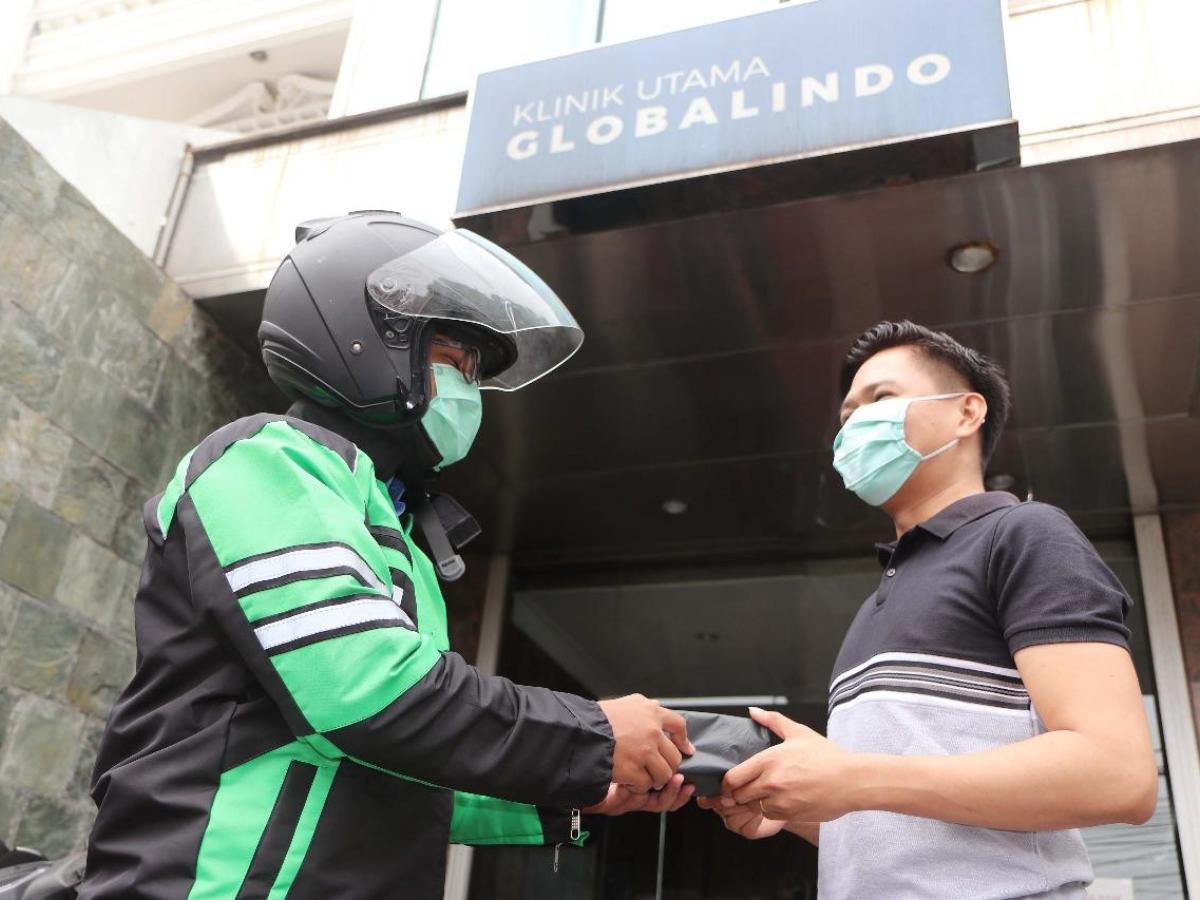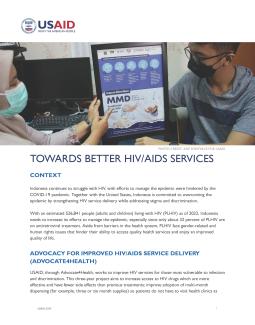Context
Indonesia continues to struggle with HIV, with efforts to manage the epidemic were hindered by the COVID-19 pandemic. Together with the United States, Indonesia is committed to overcoming the epidemic by strengthening HIV service delivery while addressing stigma and discrimination.
With an estimated 526,841 people (adults and children) living with HIV (PLHIV) as of 2022, Indonesia needs to increase its efforts to manage the epidemic, especially since only about 32 percent of PLHIV are on antiretroviral treatment. Aside from barriers in the health system, PLHIV face gender-related and human rights issues that hinder their ability to access quality health services and enjoy an improved quality of life.
Advocacy for Improved HIV/AIDS Service Delivery (Advocate4Health)
USAID, through Advocate4Health, works to improve HIV services for those most vulnerable to infection and discrimination. This three-year project aims to increase access to HIV drugs which are more effective and have fewer side effects than previous treatments; improve adoption of multi-month dispensing (for example, three or six month supplies) so patients do not have to visit health clinics as often; promote HIV self-testing to reach patients who would not get tested otherwise; and expand the use of pre-exposure prophylaxis (PrEP) to reduce the chance of HIV infection in higher-risk groups. In addition, Advocate4Health addresses the quality and availability of HIV-related care, support, and treatment, and highlights the equitability, gender-related, and human rights aspects of HIV services.
Advocate4Health’s activities will provide support to nearly 103,000 PLHIV in 13 districts across the provinces of DKI Jakarta, West Java, and Banten.
Anticipated Results
Advocate4Health will:
- Provide evidence-based advocacy to district governments for friendlier service delivery to key populations (groups at increased risk of HIV);
- Develop and provide support for the use of community-led monitoring guidelines at the national and district levels;
- Disseminate results of studies on PLHIV’s perceived service quality, quality of care, gender-based violence, and the impact of the COVID- 19 pandemic on services to the Ministry of Health, provincial and district health offices, provincial and district governments, civil society organizations, health facilities, and PLHIV communities;
- Develop policy briefs and other communication products and host data dissemination meetings with the Ministry of Health, USAID implementing partners, district and provincial health offices, and community representatives; and
- Increase awareness of the latest drug regimens and service delivery models like multi-month dispensing among PLHIV to help ensure that they continue their treatment.
Contact
Tetty Rachmawati, USAID at trachmawati@usaid.gov
Meirinda Sebayang, Jaringan Indonesia Positif at sebayang@jip.or.id


